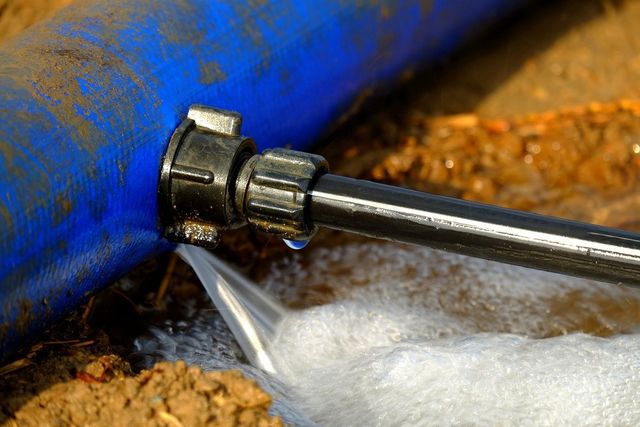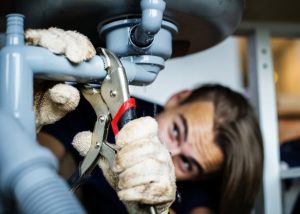How to Check If Your Home Has a Covert Leak
How to Check If Your Home Has a Covert Leak
Blog Article
Each person will have his or her own idea involving Finding hidden leaks.

Early detection of dripping water lines can mitigate a prospective calamity. Some tiny water leaks may not be noticeable.
1. Check Out the Water Meter
Every house has a water meter. Inspecting it is a surefire way that assists you find leakages. For beginners, switch off all the water resources. Make certain no person will certainly purge, make use of the tap, shower, run the washing maker or dishwasher. From there, go to the meter and also watch if it will certainly alter. Because no person is using it, there need to be no movements. That indicates a fast-moving leak if it relocates. If you discover no modifications, wait an hour or two and also inspect back once again. This implies you may have a sluggish leak that can also be underground.
2. Examine Water Usage
Assess your water expenses and also track your water intake. As the one paying it, you ought to see if there are any inconsistencies. If you spot sudden changes, regardless of your usage coinciding, it suggests that you have leakages in your plumbing system. Bear in mind, your water bill should fall under the same range every month. An unexpected spike in your bill shows a fast-moving leakage.
On the other hand, a steady increase on a monthly basis, even with the same behaviors, reveals you have a slow-moving leakage that's likewise slowly rising. Call a plumber to completely check your residential or commercial property, especially if you really feel a cozy location on your flooring with piping below.
3. Do a Food Coloring Test
When it concerns water usage, 30% comes from toilets. Test to see if they are running properly. Drop specks of food shade in the container as well as wait 10 mins. If the shade in some way infiltrates your dish throughout that time without flushing, there's a leakage between the storage tank and bowl.
4. Asses Exterior Lines
Do not fail to remember to examine your outdoor water lines too. Ought to water leak out of the link, you have a loose rubber gasket. One small leakage can squander loads of water as well as surge your water costs.
5. Examine the situation and examine
Property owners should make it a behavior to inspect under the sink counters and also inside closets for any bad odor or mold growth. These two warnings suggest a leak so prompt attention is called for. Doing regular examinations, also bi-annually, can save you from a significant issue.
More importantly, if you understand your residence is currently old, keep a watchful eye on your heating units, pipes, pipes and so on. Look for discolorations and compromising as a lot of pipelines as well as devices have a life expectancy. They will additionally normally deteriorate due to tear as well as wear. If you presume leaking water lines in your plumbing system, don't wait for it to rise. Call a specialist plumber as soon as possible so you do not end up with a dreadful mess in your home.
Early discovery of dripping water lines can alleviate a possible disaster. Some small water leakages may not be visible. Checking it is a guaranteed means that aids you find leakages. One small leak can lose loads of water and also surge your water costs.
If you suspect dripping water lines in your plumbing system, do not wait for it to intensify.
WARNING SIGNS OF WATER LEAKAGE BEHIND THE WALL
PERSISTENT MUSTY ODORS
As water slowly drips from a leaky pipe inside the wall, flooring and sheetrock stay damp and develop an odor similar to wet cardboard. It generates a musty smell that can help you find hidden leaks.
MOLD IN UNUSUAL AREAS
Mold usually grows in wet areas like kitchens, baths and laundry rooms. If you spot the stuff on walls or baseboards in other rooms of the house, it’s a good indicator of undetected water leaks.
STAINS THAT GROW
When mold thrives around a leaky pipe, it sometimes takes hold on the inside surface of the affected wall. A growing stain on otherwise clean sheetrock is often your sign of a hidden plumbing problem.
PEELING OR BUBBLING WALLPAPER / PAINT
This clue is easy to miss in rooms that don’t get much use. When you see wallpaper separating along seams or paint bubbling or flaking off the wall, blame sheetrock that stays wet because of an undetected leak.
BUCKLED CEILINGS AND STAINED FLOORS
If ceilings or floors in bathrooms, kitchens or laundry areas develop structural problems, don’t rule out constant damp inside the walls. Wet sheetrock can affect adjacent framing, flooring and ceilings.
https://www.servicemasterbyzaba.com/blog/how-to-detect-water-leakage-in-walls/

I stumbled upon that piece of writing on Detecting hidden plumbing leaks when scouting around the web. Enjoyed reading our entry? Please share it. Let other people check it out. I cherish reading our article about Leaking water lines.
Report this page